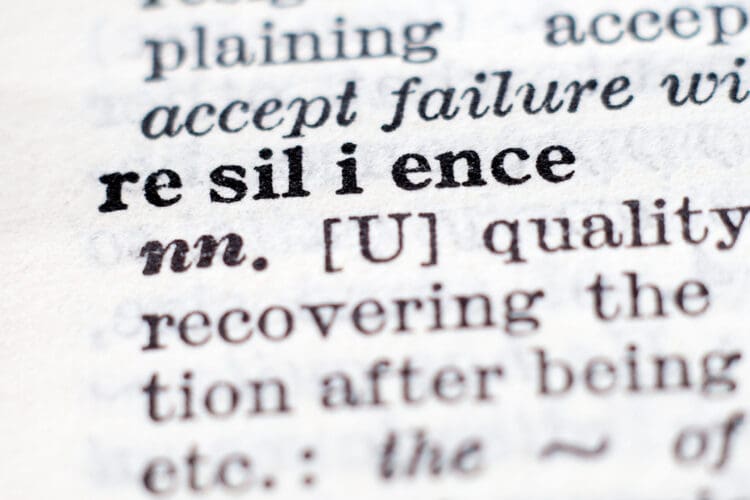When individuals in recovery hear the term resilience, they may think of a quality they don’t possess—or a challenge they doubt they’ll be able to overcome. What many don’t realize is that there’s an entire field of scientific research dedicated to resilience theory. The research defines resilience as the human capacity to adapt to challenges, whether intense, necessary, traumatizing, or benign. In other words: resilience gets us through, no matter what.
What’s challenging to any one person is unique. Challenges can involve adversity or be sudden in nature. Gradual change can also be challenging. Loss and taking risks are also challenges. Harsher situations, like war, abuse, poverty, job insecurity, and substance use disorders (SUD) are also huge testers of our resilience.
Before going into more detail about what resilience is, let’s review what resilience isn’t:
- It’s not a fixed or genetic trait. It can be developed and strengthened.
- It’s not a constant trait–we’re more resilient at some times than others.
- Resiliency isn’t simple. It’s a complex fusion of your world perspective, the quality of your resources, and your coping strategies (all of which can be changed and rebuilt).
- It’s not merely an individual experience or quality. Communities, families, and groups can be resilient, too.
According to Dr. Ken Ginsburg, a renowned pediatrician, exercising resilience involves 7 key elements, or 7 C’s: competence, confidence, connection, character, contribution, coping, and control.
The Importance of Resilience as a Tool For Moving Through Life
It doesn’t matter who you are, where you’re from, or if you have battled addiction. At some point, and perhaps even for long periods of time, it’s likely that you’ll be put through some kind of emotional, physical, mental, or psychological ringer.
That’s life.
Resilience comes into play in a powerful way when it’s built up over time, enabling you to feel less overwhelmed, less hopeless, and less likely to self-medicate, isolate, or avoid your problems. Think of resilience as a tool, just like cognitive behavioral therapy (CBT) or other forms of substance abuse treatment, that helps us cope well with life and its neverending tribulations. Think of resilience as getting you one step closer to a solution for whatever it is that’s going on.
Understanding Resilience in Adults Who Enter Recovery
Resilience is another safeguard against relapse and can even prevent the initial development of an addiction. For this reason, it’s a sign of success when individuals in recovery display or simply recall displaying resilience in the past.
As a cognitive trait, resilience allows you to mitigate extreme and prolonged exposure to intense stress. By developing your resilience, you’ll be better able to control how you cope with relapse triggers and the general challenges that recovery poses. This ultimately affords you more time in recovery to lean on support systems, create better boundaries, or identify new triggers.
How Do I Build Resilience in Recovery?
We can’t promise it will be easy, but by simply agreeing to go to treatment and participating in either of our programs in Bayard or Des Moines, Iowa, you’ll build resiliency. Our programs are structured to help you build resilience through the development of five key skills:
- Self-awareness
- Self-soothing and emotional regulation
- Healthy coping strategies
- A positive outlook
- Use of a support system
We will provide individual therapy to help you become more aware of what triggers and inspires you. We help you learn ways to express yourself and your feelings via art therapy or equine therapy sessions. Finally, through group therapy and outpatient sessions, we’ll help you connect with a network of people who understand what you’re going through.
Build Resilience in Recovery With St. Gregory Recovery Center
We hope you feel comfortable contacting us with any questions about our admissions process or our programs. You, your family, and your loved ones have been through a lot–building more resilience will help you heal and restore yourselves and your relationships and create a healthy future.











